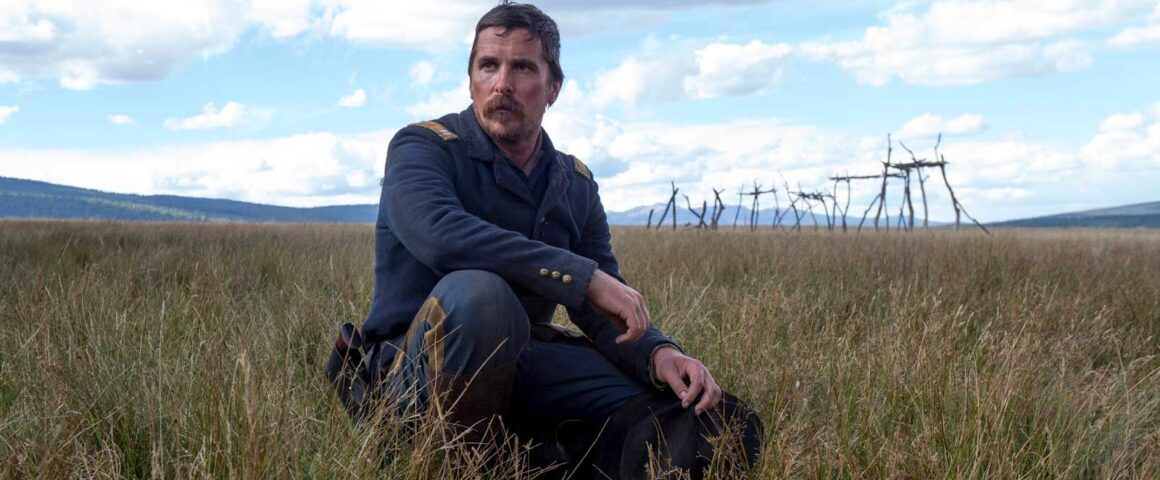Altogether, Hostiles is both sprawling and narrow, profoundly tense and equally mellow. That might sound like a film of contradictions — a message too lost in the majestic western landscapes. That’s not quite the case, though. Scott Cooper’s western carries the same slow-burn sensibilities as his 2013 down-home thriller, “Out of the Furnace,” which also, coincidentally, stars the perpetually watchable Christian Bale.
Cooper’s film is not devoid of talent, either, as it features both A-listers and a well-rounded supporting cast (namely Rory Cochrane, “Black Mass” and Ben Foster, “Hell or High Water,” as two soldiers exceedingly different from one another). Cooper’s engrossing screenplay sheds light on injustice, maltreatment, aging and empathy — and it’s all bundled into a western with frame-worthy mountain ridges and meadowed forests. Masanobu Takayanagi’s Oscar snub for Best Cinematography is borderline criminal, seeing as his scenery here is just as a significant a character as Bale’s Captain Joseph Blocker.
Hostiles also boasts an enormous opening scene — one that foreshadows and begins to bind the many thematic threads. Its closing moments, too, are breathtaking — between revamped costumes and a well-executed subplot.
To be clear, Cooper’s film is not an exhibition on gun-slinging, nor does it set out to overwhelm viewers, although its few action scenes are both brutal and timely. Hostiles is a nuanced film, a slow-burner about corrupted souls, the stained American West and spirituality on the frontier. Yet it also resonates today, speaking to the many social and racial injustices and questions we continue to grapple with.
The 134-minute western begins as Rosalie Quaid (Rosamund Pike, “Gone Girl”) endures a horrific frontier crime. Unable to cope with her grief, she is on the brink of insanity until found by Bale’s cynical, soft-spoken and inscrutable Captain Blocker. The soldier, long seeking retirement, is leading a military detail north, to the Valley of the Bears, Montana, to return an aging Native American chief to his homeland.
The chief (played by a characteristically effective Wes Studi, “Avatar”) has a long, bloodstained history with the imperial white man. Joe, too, has seemingly taken part in the systematic butchering of Native tribes. But the two have been forced to break bread together, and “become one” on their journey northward. As Joe grows closer to Rosalie amid her grief and subsequent warpath, he’s also forced to keep his diverse detail in line. This includes Master Sergeant Thomas Metz (Cochrane), who’s a longtime ally, Corporal Henry Woodson (newcomer Jonathan Majors), and Yellow Hawk’s immediate family.
Hostiles offers a lengthy runtime, and as such, must frequently stave off genre traps. The western is a well-trod landscape, and so it is easy to just become another variable in the larger formula. There are certainly moments in the Bale-led period film that could be considered trite, but they are fully and wholeheartedly overpowered by memorable performances and stellar production values.
The heart of the film remains the dynamic between its two leading — albeit vastly different — characters, a jaded Joe and the grief-stricken yet still pious Rosalie. Their budding romance and her part in Joe’s maturation makes for some of the best cinema of 2017 (the film premiered at the Telluride Festival in September 2017). That’s not overstepping, either, because when the two are shown side by side, even the pastoral landscapes become ambience, second only to the palpable onscreen chemistry.
Again, Hostiles is in many ways a film of contradictions, yet somehow, through the horse-drawn processions, the film’s characters remain unflappable, its story easy to grasp just beneath the surface. Even today, there is something remarkable about a well-structured western, something of an escapist film poised to make us reimagine and relate. Hostiles fits that description and is one of the better westerns to come along in years.




'Movie Review: Hostiles (2017)' has no comments